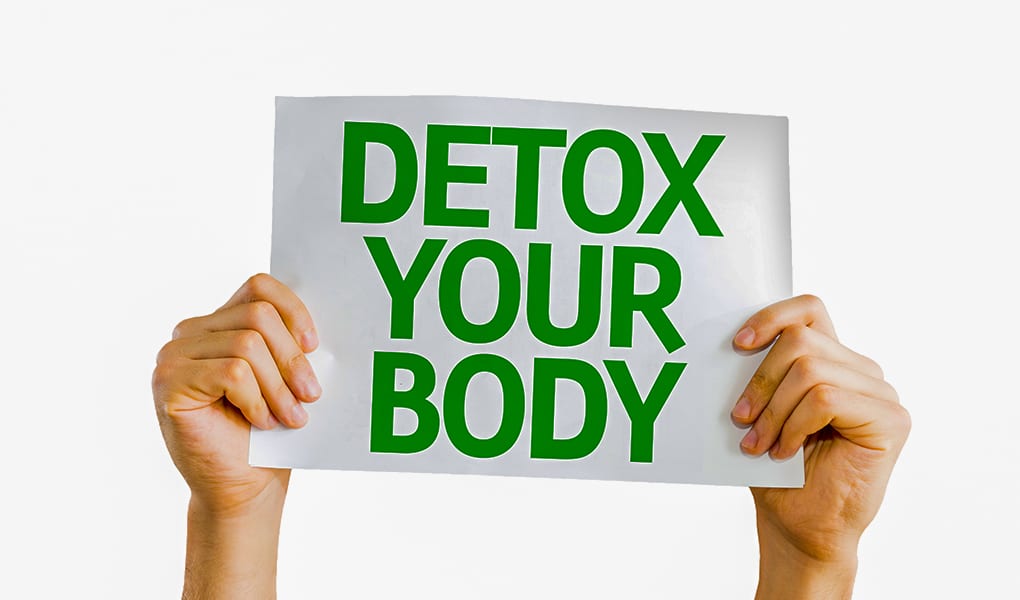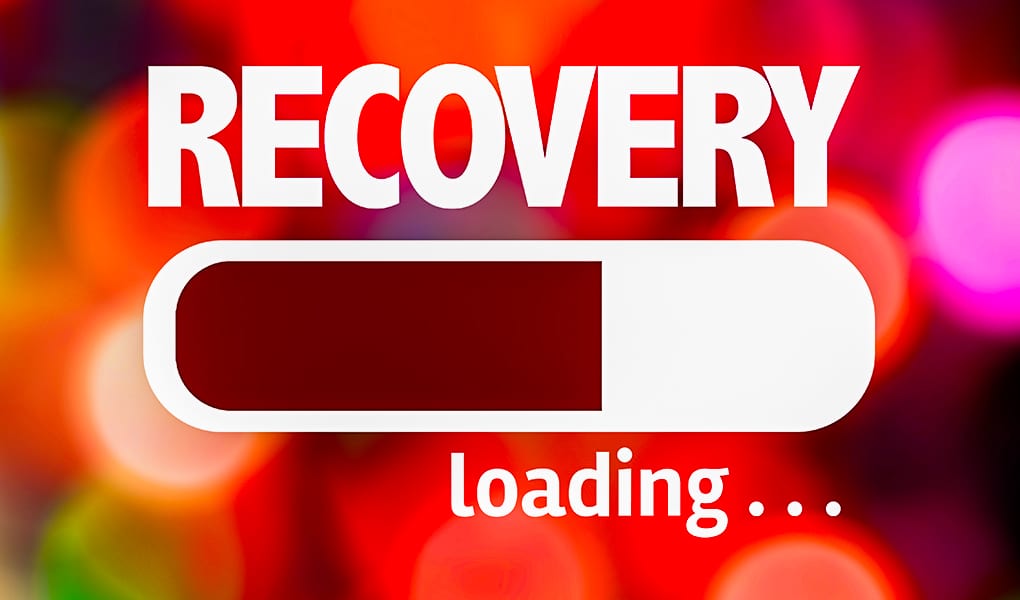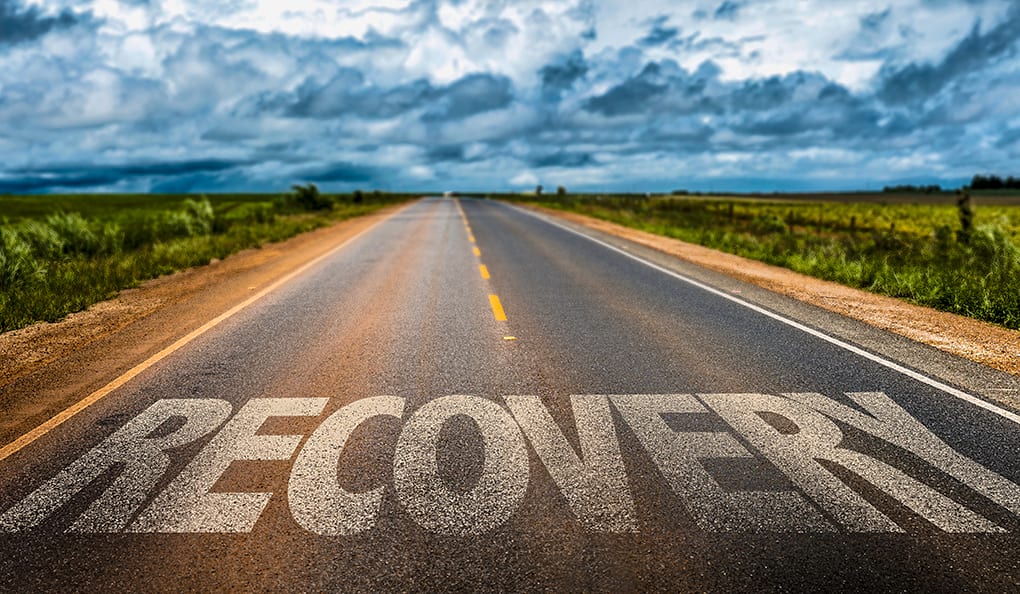Your Austin-Area Addiction Treatment Options
Addiction recovery is a process. Admitting to yourself that you have a substance abuse problem is the first of many important steps in that process. The next step is to find a solution to that problem. For most addicts in recovery, this means finding an effective treatment program that will help them reclaim their health and happiness.
For a person suffering from substance abuse, there are several treatment paths available. Some find that detox is the best way to get clean before going into rehab. Others begin their recovery journeys by going straight to an inpatient or outpatient facility. After formal treatment, these individuals can continue to work on recovery more independently, using the lessons learned during rehab and the support of a therapist and regular recovery meetings to stay strong and sober. Others go straight from detox into a sober home, and yet still others bypass formal treatment altogether, getting the support they need to turn their lives around by moving directly into a sober home.
The vital thing to keep in mind when it comes to addiction recovery is that there isn’t one process, path, or method of treatment that will work for everyone. And what works for each person may change over the course of the recovery journey. It’s critical to do the trial and error work that it takes to find the “right things” – and the right people to help you sort out what those “right things” are.
Below you’ll find a breakdown of some treatment options and supports available in and around Austin, Texas, where the recovery community is strong. Our hope is these resources will help you discover what works for you, what your “right things” are, and guide you to your best local help in time of need.
Skip Ahead to Topic
Treatment Programs
Inpatient Treatment Programs
Someone participating in an inpatient (residential) treatment program must live at that facility for a period of time. How long an individual might stay depends on the program and the individual’s needs. The average stay is 30 days, but many facilities offer 60- and 90-day programs as well. The overall length of a person’s stay depends on numerous factors, including the severity of his or her addiction, co-occurring mental or physical problems, and whether that person has been through rehab before.
Inpatient treatment facilities provide 24-hour care and supervision, and a structured environment where people receive substance abuse treatment alongside other individuals also in recovery. For this reason, it’s a good option for someone who is suffering from long-term addictions or heavy substance use, is addicted to multiple substances, and/or has co-occurring issues that could complicate and worsen the detoxification experience. Medical professionals are available in an inpatient setting to address the physical side of addiction recovery, from the harmful effects of drug or alcohol use to the difficulties of the withdrawal process. Therapists and psychiatrists are also present to support the mental and emotional side of recovery. Residents may participate in life skills and relapse prevention groups or classes, and in therapeutic activities designed to help them learn to cope with stress in different, healthier ways.
A growing number of inpatient facilities also provide support to recovering addicts’ families. Family programs invite the loved ones of those in recovery to participate in various activities in order to repair trust, improve communication and generally help repair dysfunctional family dynamics. Family involvement in an individual’s recovery typically leads to better outcomes.
Inpatient treatment is the most expensive addiction treatment option, with prices for a 30-day stay ranging from $2,000 to $25,000 + a day, depending on whether basic, standard, or luxury-level care and amenities are provided.
Some inpatient options in the Austin area include:
New Hope Ranch
(512) 566-3050
11908 Sparks Road, Manor, Texas 78653
admissions@newhoperanch.com
https://newhoperanch.com
Ripple Ranch Recovery Center
(855) 239-7117
2098 Texas Oaks, Spring Branch, Texas 78070
https://shadowmountainrecovery.com/location/1/ripple-ranch-recovery-center
The Treehouse
(866) 332-7439
6950 Shady Lane, Scurry, Texas 75158
info@addictioncampus.com
https://www.treehouserehab.org
The Right Step
(844) 768-0412
840 Co Road 420, Spicewood, Texas 78669
https://www.rightstep.com
You can find a more comprehensive list of inpatient addiction programs.

Outpatient Treatment Programs
Outpatient treatment programs require participants to come to the facility or clinic for certain hours of the day or week while maintaining residence at home during non-treatment hours. The same services that are provided in an inpatient setting are typically offered in outpatient programs as well: education; medical care; individual, group and family therapy; and psychiatric treatment. Outpatient treatment covers a range of program types with varying levels of intensity, from day programs to intensive outpatient programs (IOPs) to aftercare.
The major differences between inpatient and outpatient care have to do with the level of supervision and structure. Outpatient treatment has the advantage of enabling people to proceed with their daily lives – work, social engagement, family responsibilities, and so forth – while going through treatment. The downside of outpatient treatment is that the greater freedom allowed may lead to greater temptation to return to the places, people and things that fueled the addiction.
Outpatient drug addiction treatment is a good option for patients who have already gotten an initial grounding in their recovery at an inpatient program, or through detox, or for those who have a strong commitment to their recovery already and can rely on good support at home. The cost of outpatient care is generally less than inpatient, with price ranges varying widely based on the facility and its services, the number of visits per week, and the length of the program.
There are numerous outpatient addiction treatment options in and around Austin, including the following:
Seton Mind Institute
(512) 324-3380
Multiple Austin locations
https://www.seton.net/behavioral-health-care/seton-mind-institute/
New Hope Ranch
(512) 566-3050
11908 Sparks Road, Manor, Texas 78653
admissions@newhoperanch.com
https://newhoperanch.com
Northwest Counseling & Wellness Center
(512) 250-9355
12335 Hymeadow Drive, Suite 300, Austin, Texas 78750
https://www.ncwcaustin.com
See Sober Austin for a more comprehensive list of outpatient programs.
Detox Treatment Programs
Detoxification is the process of removing toxic substances from the body. For substance abusers, this term describes the period of time it takes for the body to clear itself of the influence of any drugs or alcohol. A detox treatment program provides individuals under the influence of drugs or alcohol with a safe place to undergo that detoxification process. Withdrawal from an addictive substance can be extremely uncomfortable, and in some cases, even dangerous, especially for those addicted to depressants or opioids. Medical personnel at a detox can oversee this detoxification process, using medications where warranted to ease the discomfort of withdrawal and ensure physical safety.
The detox process can take anywhere from a few days to several months. The length it takes depends upon a variety of factors, including the addictive substance the person was using, the length of time the person was addicted; the dosages of the substance taken; the individual’s genetic makeup, age and gender; and underlying medical and mental health issues. Most people can successfully detox within a week or so (though cravings may linger long afterwards). With that in mind, detox programs are typically 3, 5 or 7 days long, and are designed to support the individual through the initial, most difficult part of withdrawing from a substance.
Detox supports a person through withdrawal, but these treatments are not long or comprehensive enough to address the underlying emotional, psychological, social and behavioral issues that drove the addiction. For this reason, people seeking recovery from substance abuse should view detox as the first stop on a longer journey home to wholeness. An inpatient or outpatient treatment program is a good next step for those who have successfully completed a detox program.
Lonestar 24-Hour ER and Texas Star Recovery are two excellent choices for detox programs in Austin.
Lonestar 24-Hour ER
(830) 627-0911
1751 Medical Way, New Braunfels, Texas 78132
info@lonestar24hrer.com
https://www.lonestar24hrer.com
Texas Star Recovery
(512) 462-6729
1106 West Dittmar Road, Austin, Texas 78745
https://texasstarrecovery.com
For other choices, see Sober Austin’s list of facilities for Drug and Alcohol Detoxification.
Recovery Homes
When formal treatment ends, individuals in recovery can choose from various aftercare options, including a recovery home (also known as a sober living home). A recovery home serves as a bridge between rehab and fully independent living. It’s a place where residents can practice the skills they’ve learned in treatment while living in a supportive environment with others who are also in recovery.
Although a resident can freely come and go to work, social events, and other engagements while living in a recovery home, structure is still provided by strict house rules, by curfews, and by the accountability provided regarding meeting or support group attendance. House members are required to remain sober and submit to random or scheduled drug and alcohol testing to ensure compliance.
Recovery homes are ideal for gaining confidence about life back in the “real world” and for building a network of sober friends that can serve as a second family. Standards for accountability can vary from home to home, but for most the support is better than what they’d have on their own and is instrumental in staying on the right path.
Recovery homes are fairly affordable compared to formal treatment. Still, like treatment programs, costs can vary. A “residential fee” or rent is the highest associated cost, and this goes toward covering the mortgage of the house or apartment building being used for the recovery home. Residents are often responsible for their own food, gas, medications and other incidentals.
Second Chances Recovery Homes has been serving those in recovery in the Austin area for over a decade. Unlike some other recovery homes, we support the use of medication-assisted therapy for our residents and accept those with dual diagnoses. Our experienced staff are there to support men and women in recovery through the tough transition from treatment to independent sober living.
You can find a list of other Austin-area recovery homes here.
Other Recovery Supports
MAT (Medication-Assisted Treatment)
Medically or medication-assisted treatment (MAT) involves the use of medications in conjunction with counseling and various behavioral therapies to cure drug addiction. It is most effective at treating opioid abuse disorders and, in some cases, may help prevent people from relapsing. At present, the FDA has approved three drugs to treat opioid addiction: naltrexone, methadone, and buprenorphine. The popular addiction medication Suboxone is a combination of buprenorphine, a drug that relieves symptoms of opioid withdrawal, and naloxone, a drug that reverses the effects of narcotics.
The use of MAT has been shown to be highly effective in treating addiction, but there is a stigma associated with the use of some of these medications. The fear that drugs like Suboxone, for example, are merely acting as substitutes for the opioid addict’s drug of choice, have fueled much controversy over medication-assisted treatment. Certainly, MAT has its flaws, and without proper supervision, can be abused just as naysayers fear. There is a need to develop more advanced methods of addiction treatment using medication, but in the meantime, drugs like Suboxone are often better than no medication-assistance at all for the addict who is struggling to break the cycle of drug abuse.
Click here to learn more about Suboxone and the value of MAT in addiction recovery.
12 Steps Meetings
The 12 Steps were originally created by the founders of Alcoholics Anonymous as principles to help establish a basis for recovery from alcohol addiction. The program was highly successful during its early years, inspiring other addiction recovery support groups such as Narcotics Anonymous and Overeaters Anonymous to adapt the program or steps for their own uses.
Today there are 12-step programs for many types of addictions and compulsive behaviors. These programs have helped people from varied backgrounds, classes, and belief systems. Though the 12 Steps rely heavily on Judeo–Christian spirituality, the program has proven useful even for atheists and agnostics. Its insights into human nature, the power of vulnerability and connection, and the realities of addiction have enabled it to transcend barriers and help millions worldwide overcome their addictions.
Twelve Step meetings are usually organized locally. Members meet on a regular basis, often in churches or community centers, and discuss the Twelve Steps and related literature while also sharing personal stories of failure and success in their recoveries.
Getting over any type of addiction requires encouragement, support, and, most of all, accountability – and that’s where the 12 Steps shines. Addicts are supported in 12 Step meetings by people who are like them and have overcome (or are still overcoming) addiction. The sponsorship model promoted by the 12 Step Program, where new members are mentored by others further along in their recovery, has been instrumental to the success of the 12-Steps in helping addicts get and stay clean.
There are many 12-Step meetings in Austin. Click here to find the 12-Step meeting that is right for you.
Other Support Groups
The 12-Steps may be one of the most popular support group models out there, but it’s by no means the only one. Here are a few non-12 Step options:
- SMART (Self-Management and Recovery Training) Recovery is a non-12 step support group that uses a four-point program to help those struggling with addiction reclaim their lives. It focuses on 1.) Building and maintaining the motivation to change, 2.) coping with urges to use, 3.) managing thoughts, feelings and behaviors without turning to addictive substances, and 4.) living a balanced, health, and positive life. SMART touts itself as secular and science-based.
- Moderation Management takes an unusual approach in that it does not require abstinence for its group members. It targets drinkers in the early stages of their alcoholism, when the disease has not yet become intractable, and changing behaviors to encourage moderate alcohol intake are perhaps still possible. Many MM members go on to 12 Step or other abstinence-based programs, but some people find Moderation Management as less threatening first step toward recovery.
- Women for Sobriety specializes in the needs of women in recovery. Its program uses 13 acceptance statements to help women re-wire their brains and overcome self-destructive thoughts and beliefs that drive their addictions. WFS promotes the idea that if a more positive self-image will lead to better life choices.
A list of 12-Step alternatives in Austin, Texas, can be found here.
Click here for Moderation Management meetings in Austin.
Addiction Therapists
Addiction therapists are counselors who specialize in helping their patients to overcome drug and alcohol dependencies as well as other self-destructive habits such as disordered eating or gambling. These therapists assist patients in identifying the underlying problems driving their addictions and in developing healthier habits and coping mechanisms. They can provide progress reports to courts, refer patients to support groups, and set up aftercare plans. Some addiction therapists may also support patients in their pursuit of life and career goals.
Carma Health has a team of therapists available for those who utilize their healthcare services.
CARMAhealth (512) 212-4670
630 West 34th Street, Austin, Texas 78705
austin@carmahealth.com
https://carmahealth.com/
Joe Dias has served many recovering addicts, including Second Chances Recovery Homes residents.
Joe Dias Counseling Services
(512) 439-9808
mr.dcounseling@gmail.com
https://sites.google.com/site/joediascounselingservices/
For a list of other addiction therapists in the Austin area, click here.

Recovery Coaches
Recovery coaches are another powerful tool for your recovery toolbox. In the sports world, a coach comes alongside a player and advises and encourages, helping that athlete to reach his or her potential. A recovery coach operates the same way, except that his or her focus is on supporting people in their addiction recovery. Recovery coaches have often been through addiction recovery themselves and are, therefore, able to offer guidance and encouragement from their personal experiences. Like a therapist, a recovery coach often assists in developing a wellness plan and connects the recovering addict with helpful resources. Although recovery coaches may give offer advice, they are not licensed therapists, and are not qualified to provide formal counseling. They function more as personal cheerleaders through the recovery process.
There are many excellent recovery coaches in the Austin area, including the following:
Recovery coaches with Communities for Recovery
4110 Guadalupe St., Bldg. 635, Austin, Texas 78751
512-758-7686
info@cforr.org
https://cforr.org
Wayne Johnson (with Communities for Recovery)
wayne.johnson@cforr.org
(512) 954-0070
Darrin Acker (with Communities for Recovery)
(512) 818-7557
dacker@cforr.org
Recovery coaches with Action Wellness Group
https://www.actionswellness.com
(512) 955-4364
For a more complete list of recovery coaches in Austin, Texas, click here.
Conclusion
There are a lot of choices when it comes to treating addiction. Some self-knowledge and advice from therapists, family and medical professionals are instrumental in helping the addict on the brink of recovery to determine the best course for him or her.
Keep in mind that it is never a good idea to go “cold turkey” and detox your body without medical supervision. Put yourself in the best possible position to avoid relapse or a medical crisis by entering a detox program or an inpatient program (these typically include a detox phase). It’s also worth pointing out that very few people, if any, have ever successfully kicked an addiction on their own. Reach out for the support you need to make genuine, lasting changes.
Above all, do not allow the multitude of options to paralyze you. Sometimes you simply have to take a step – any step – and things become clearer from there.



Recent Comments